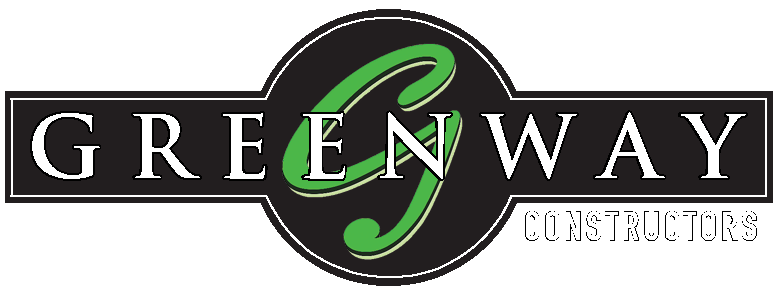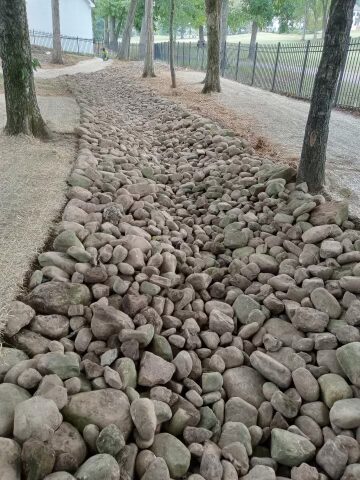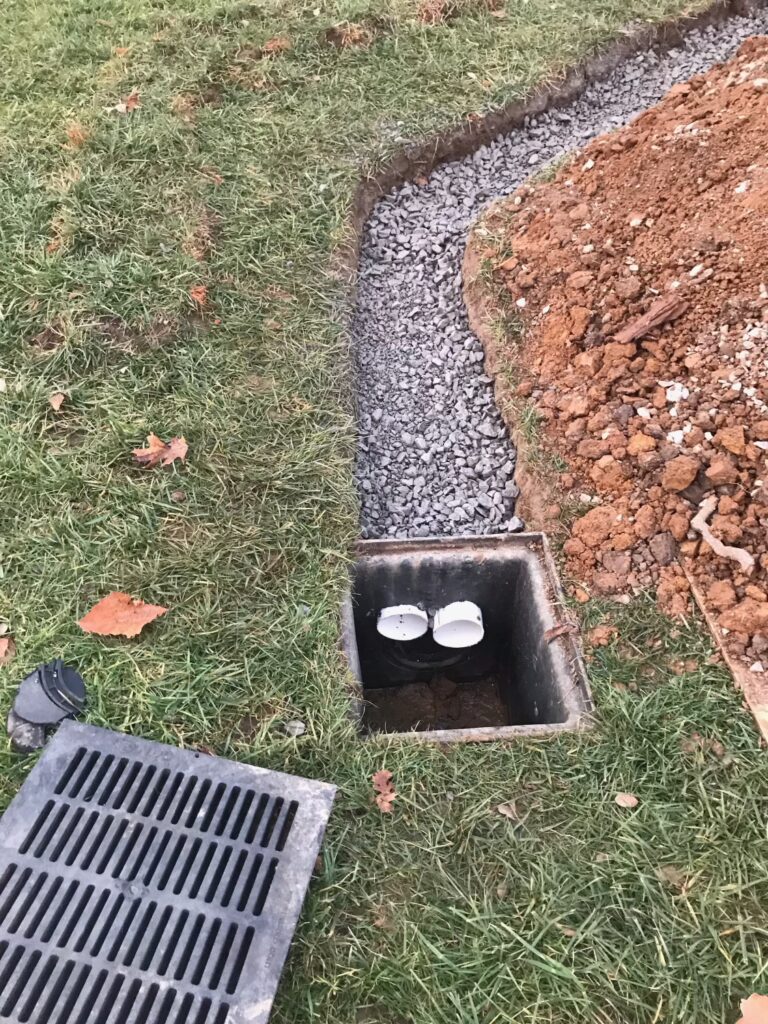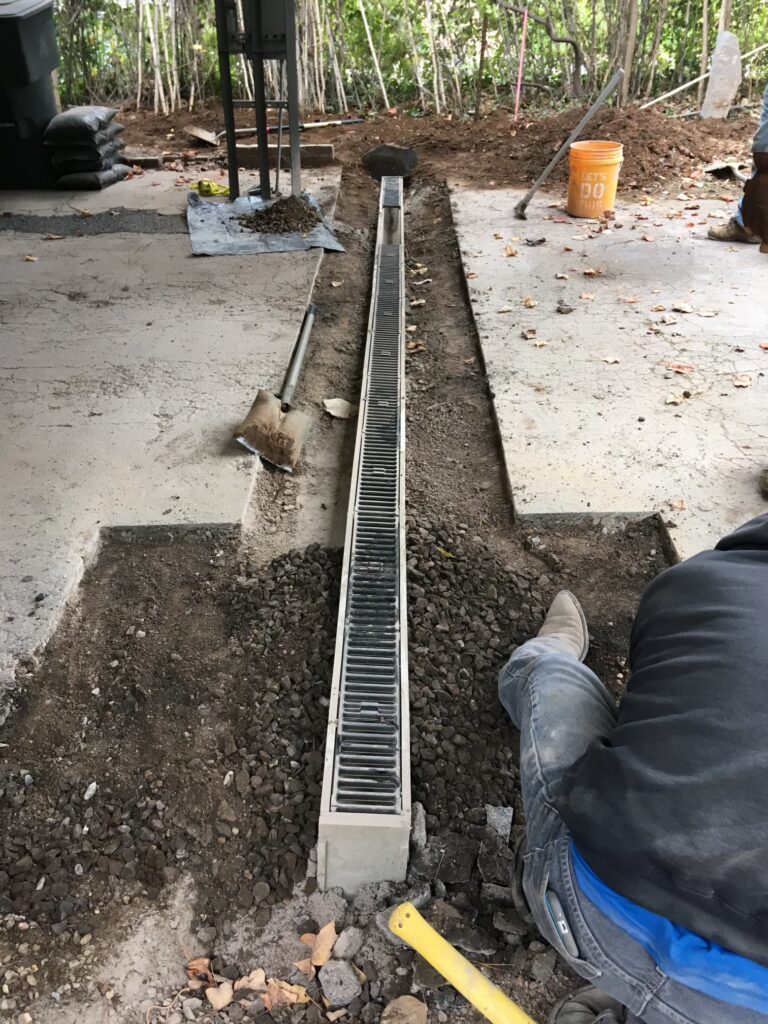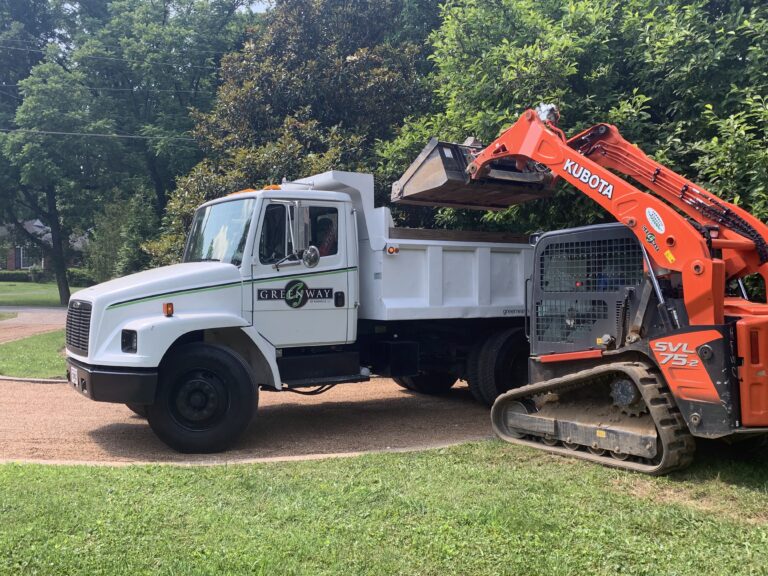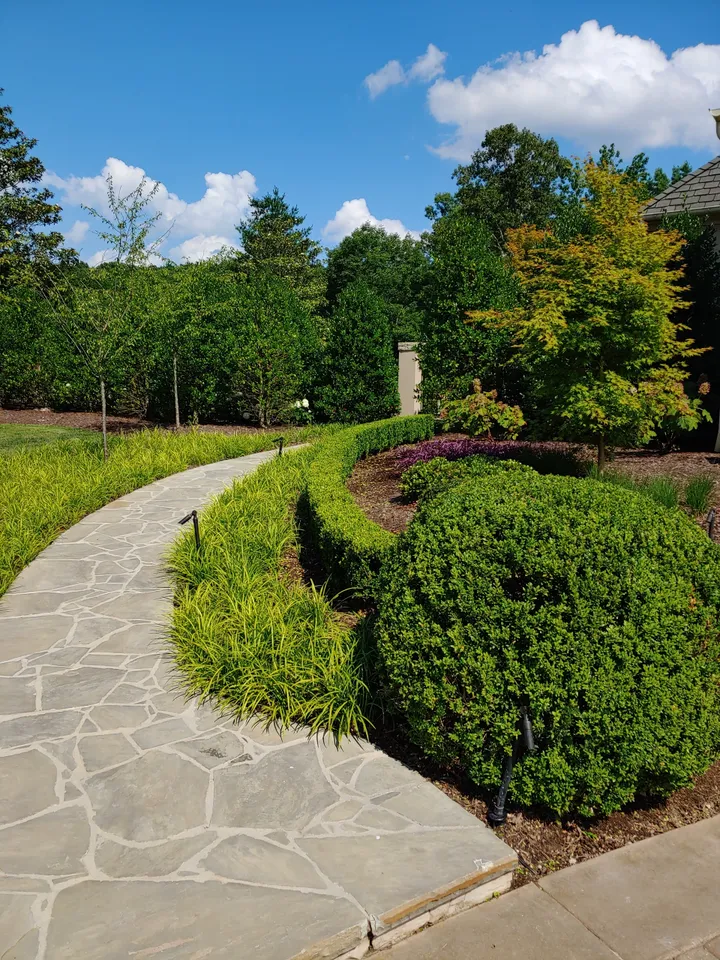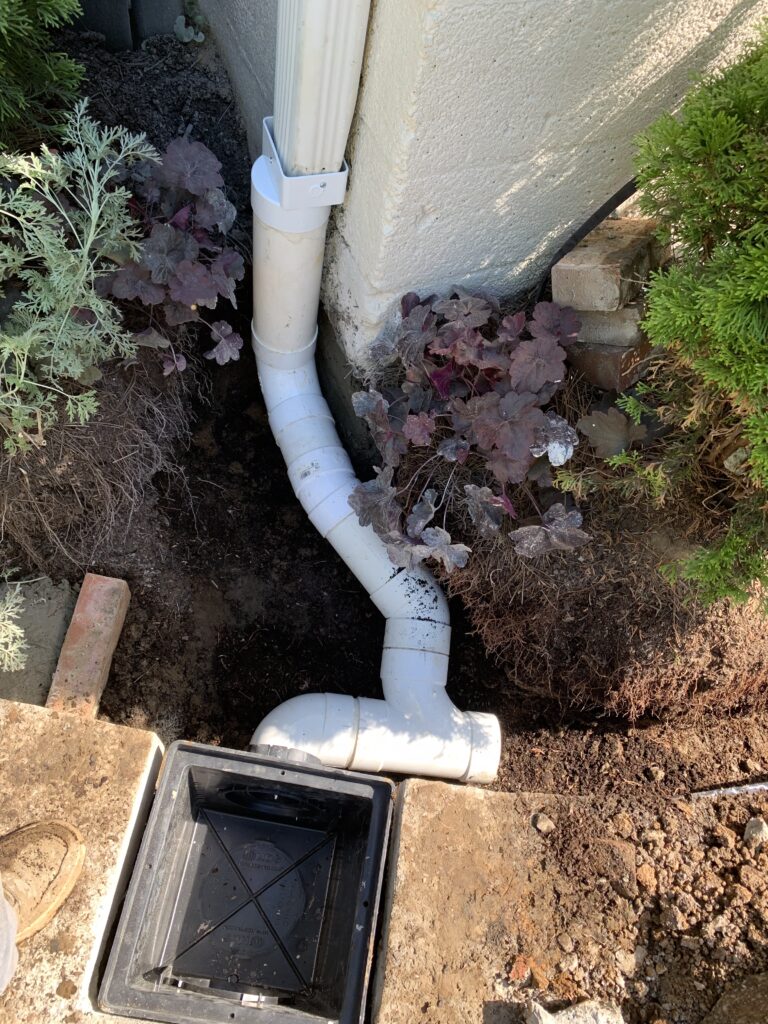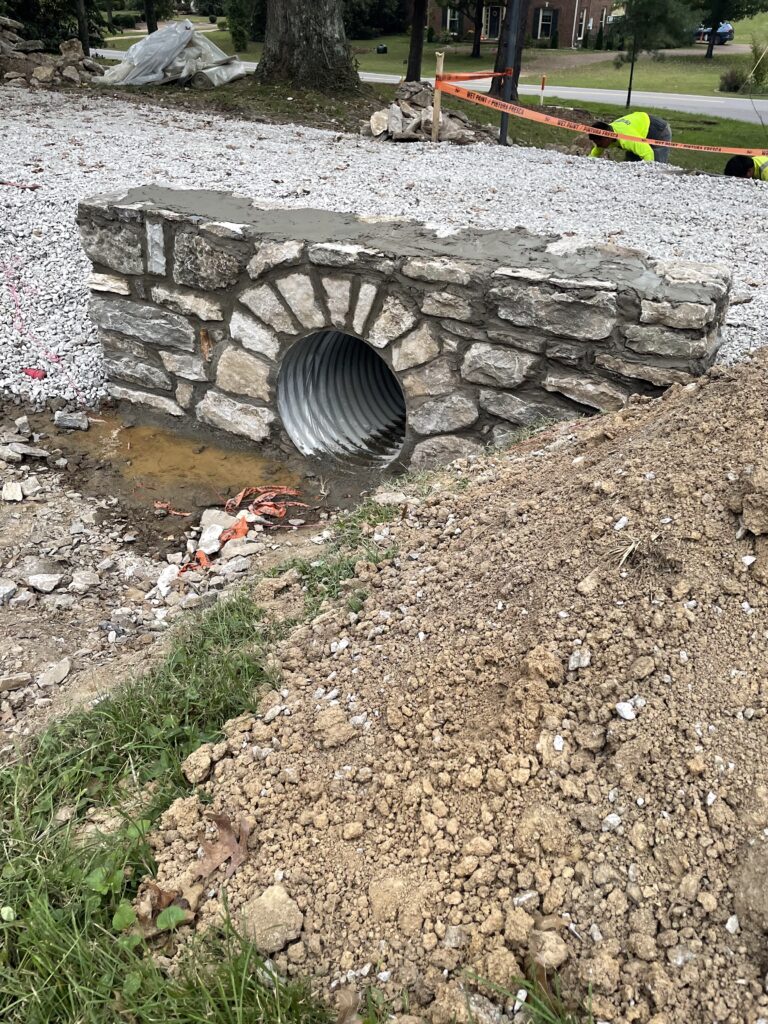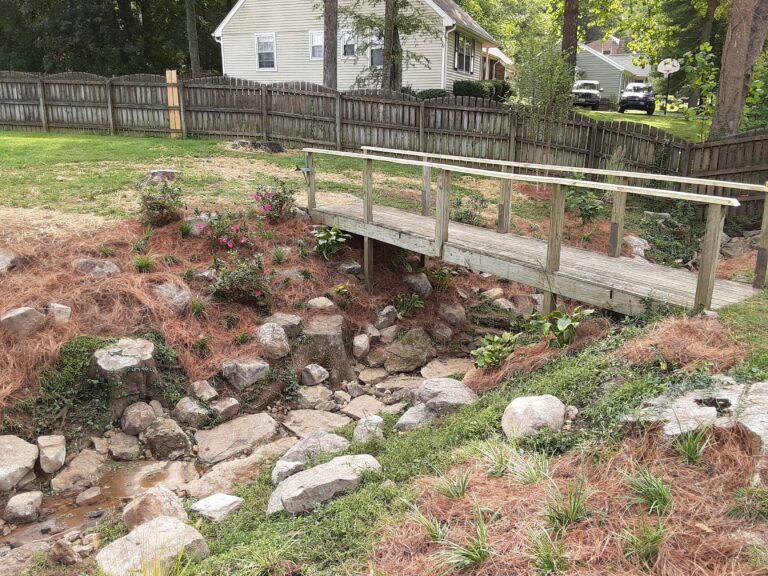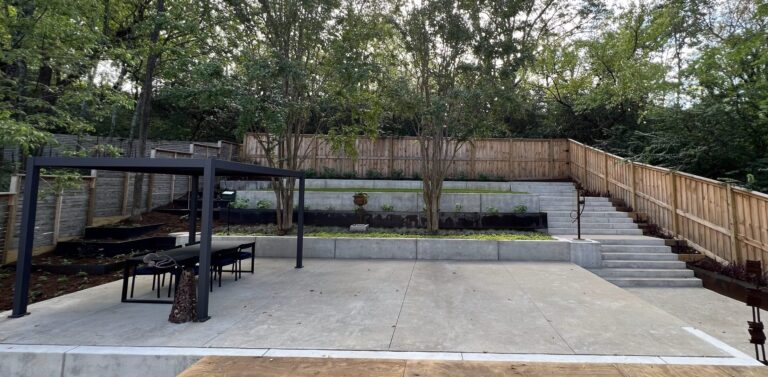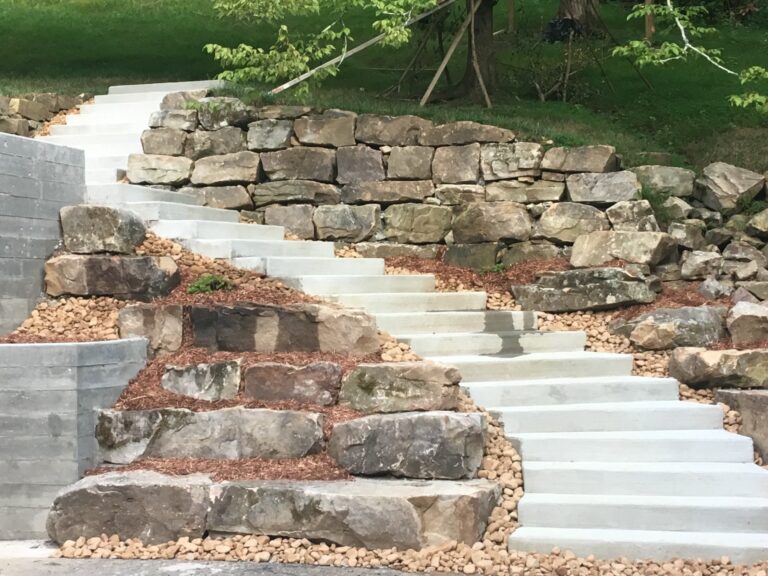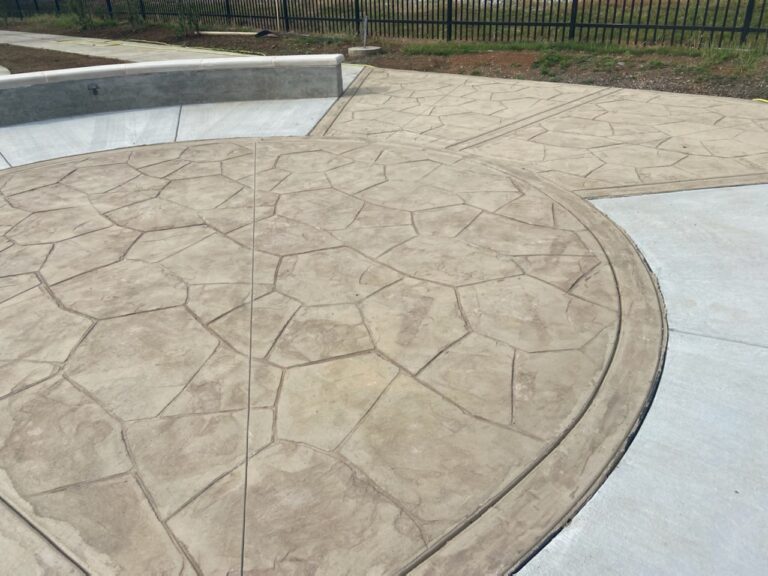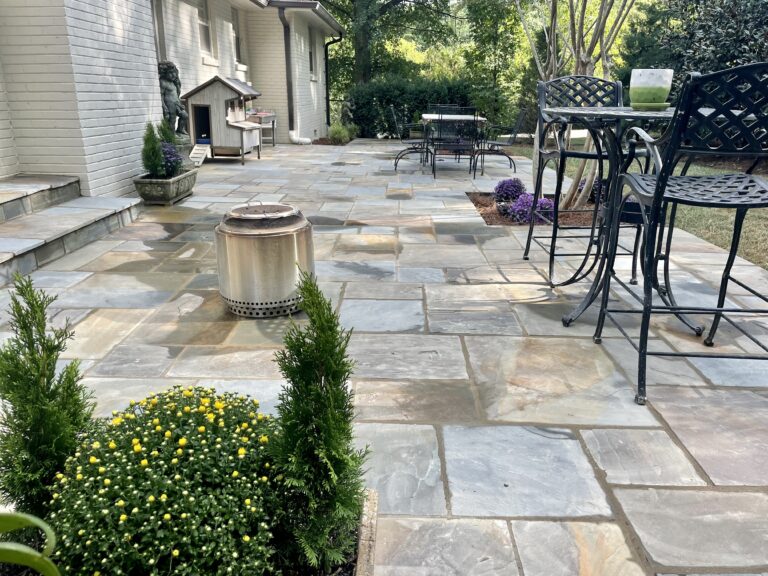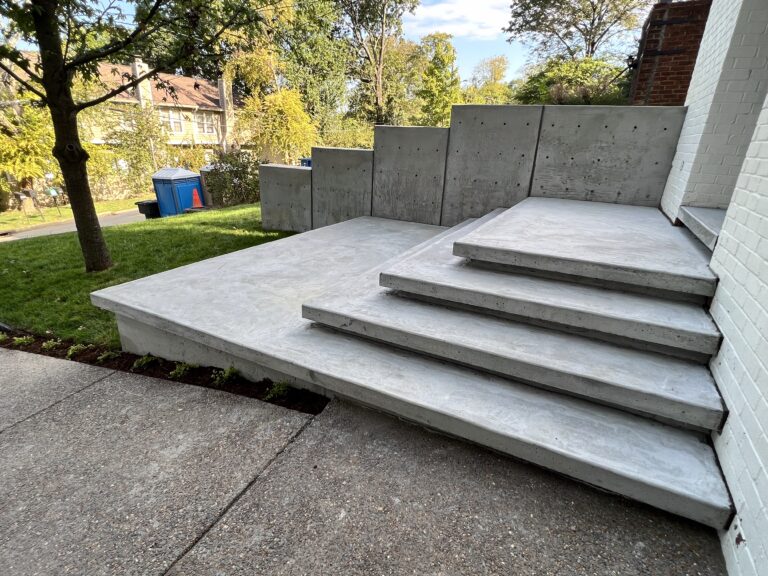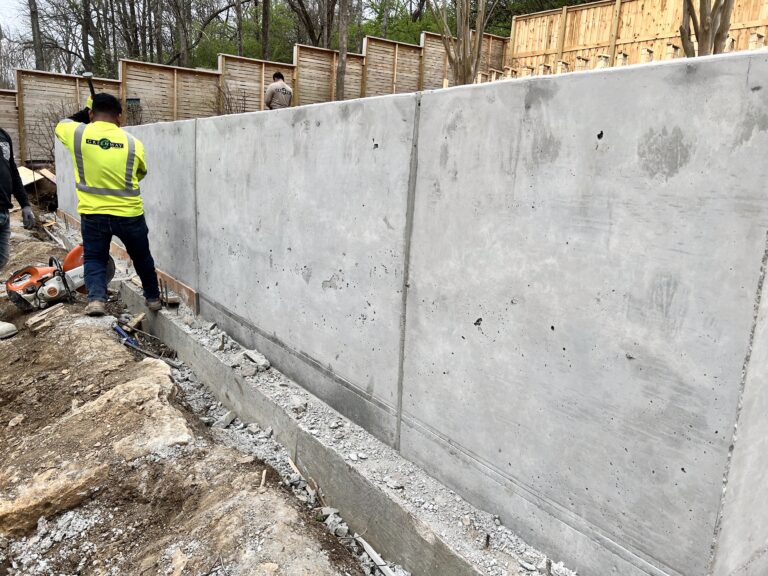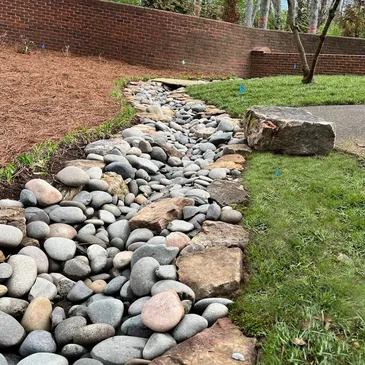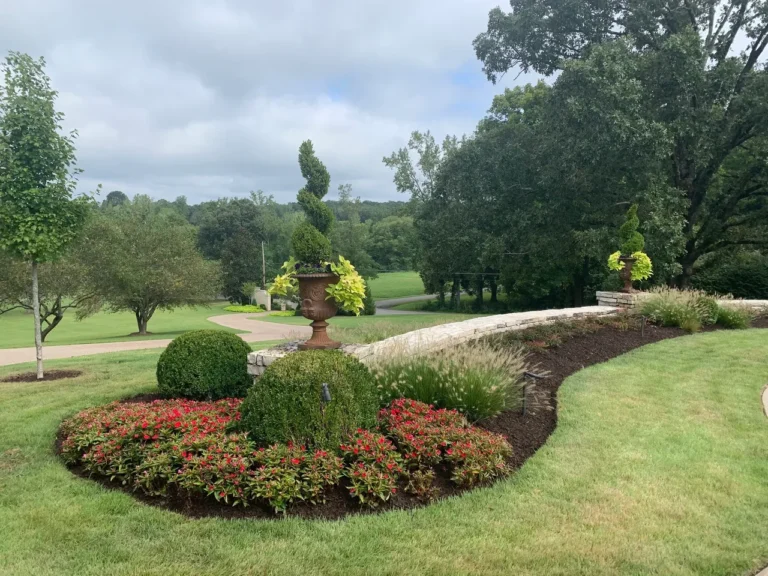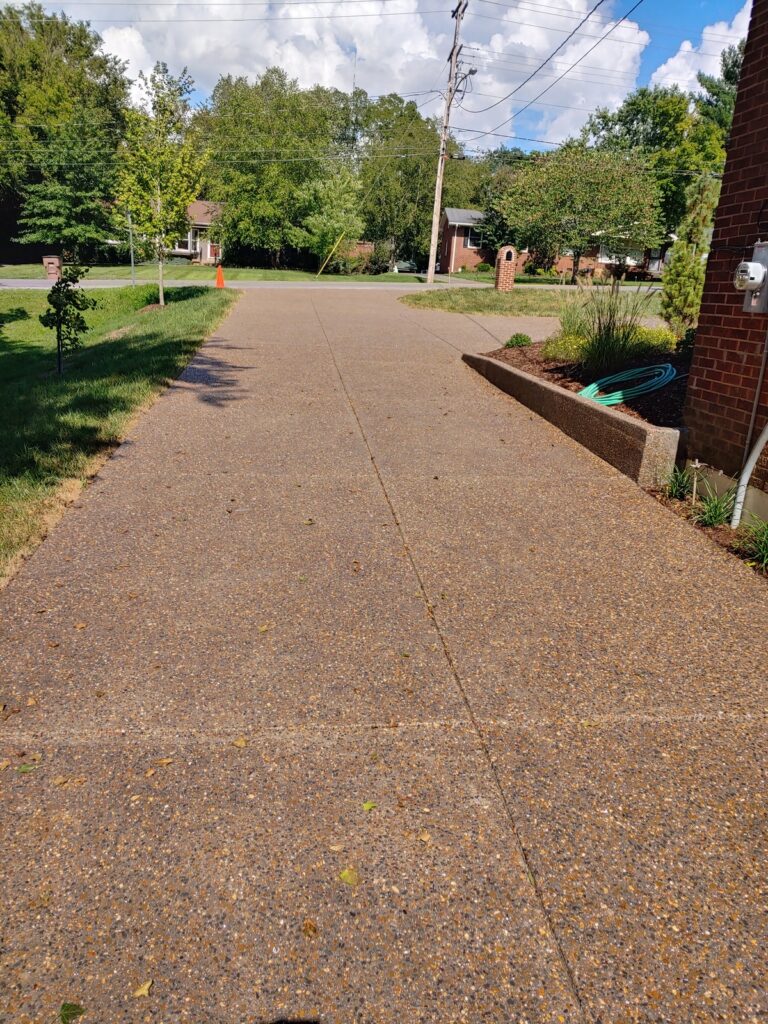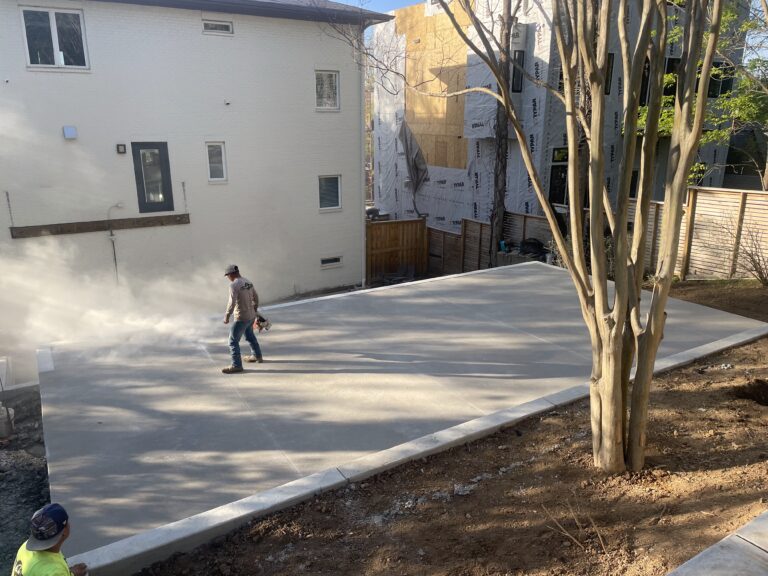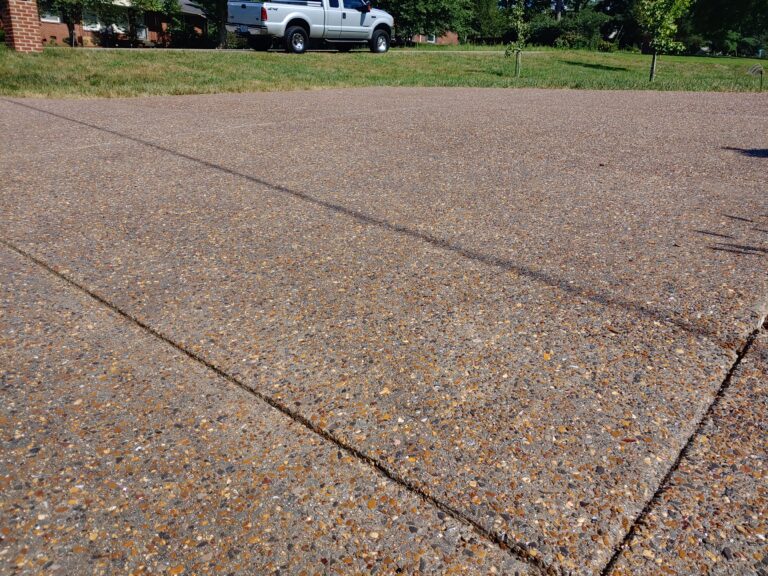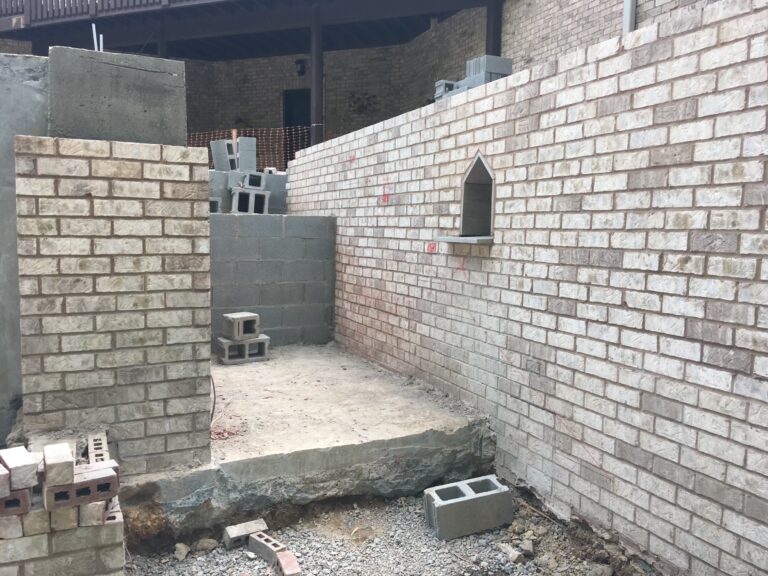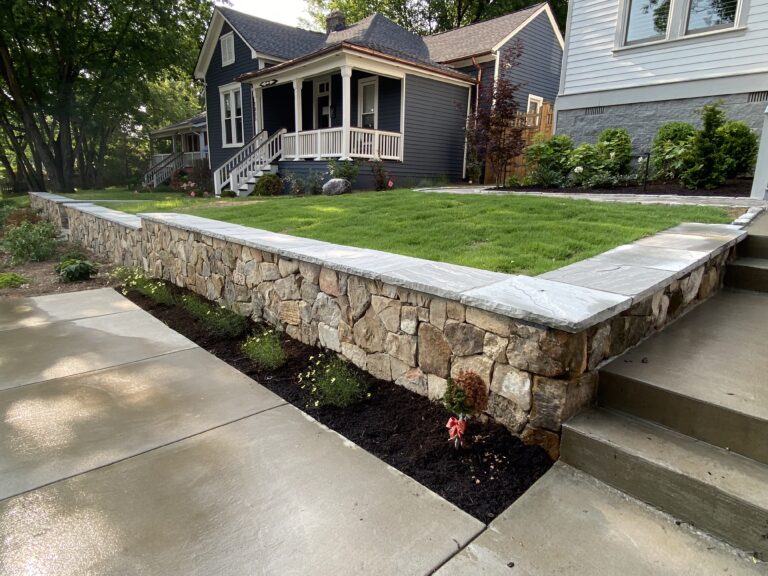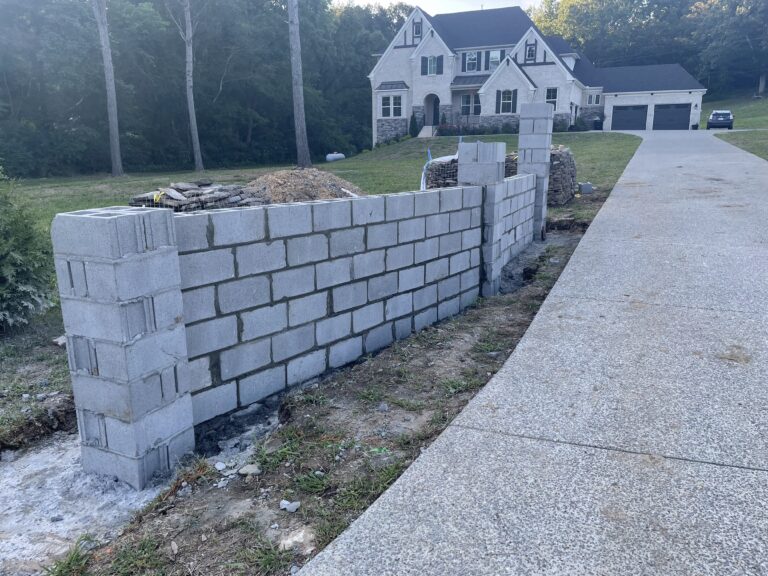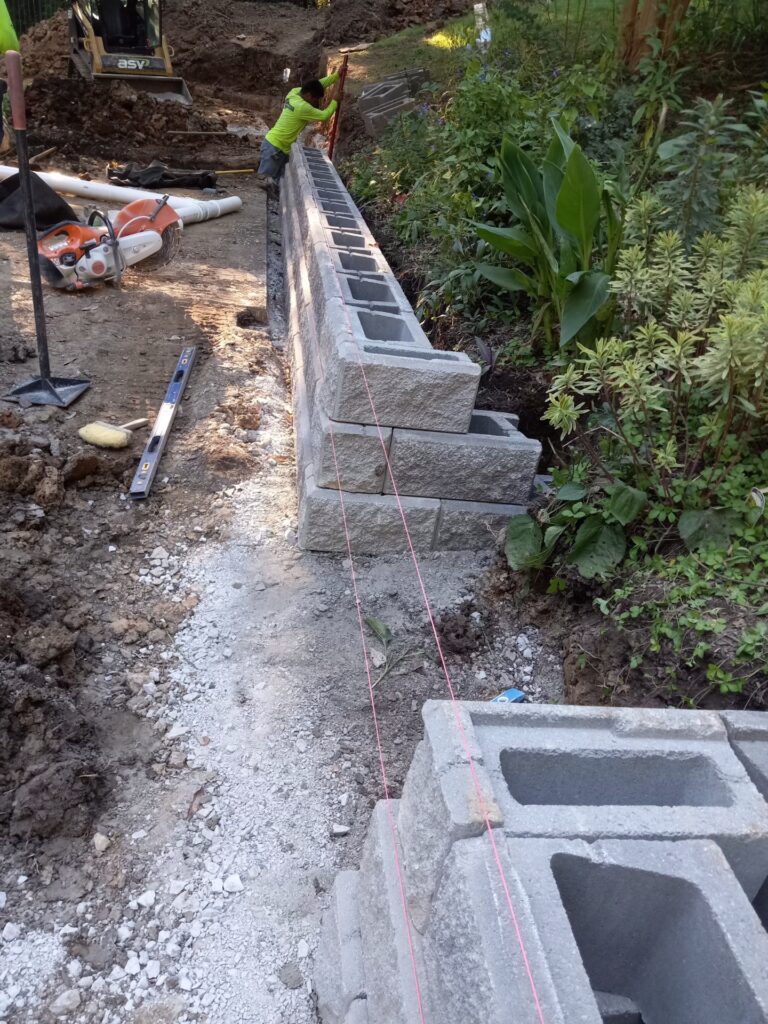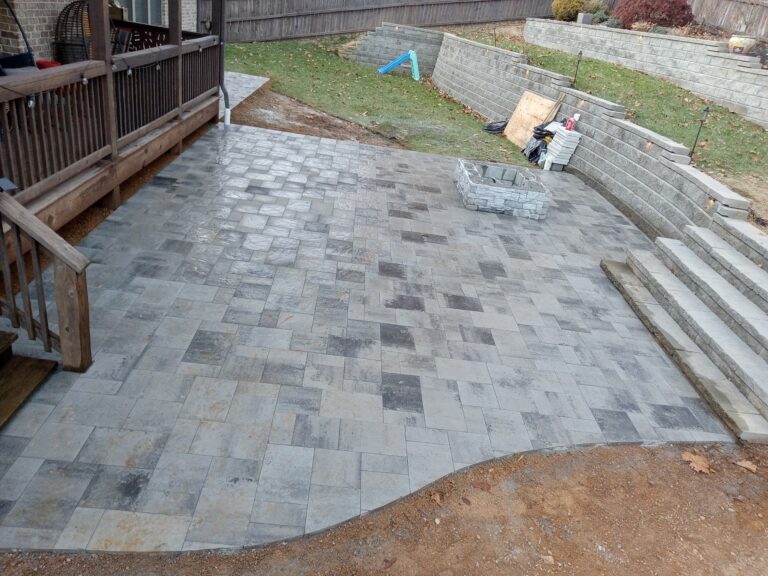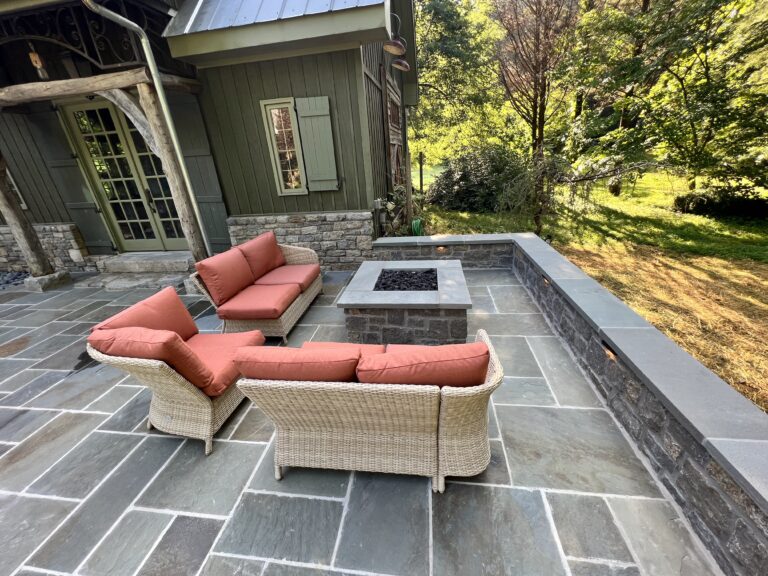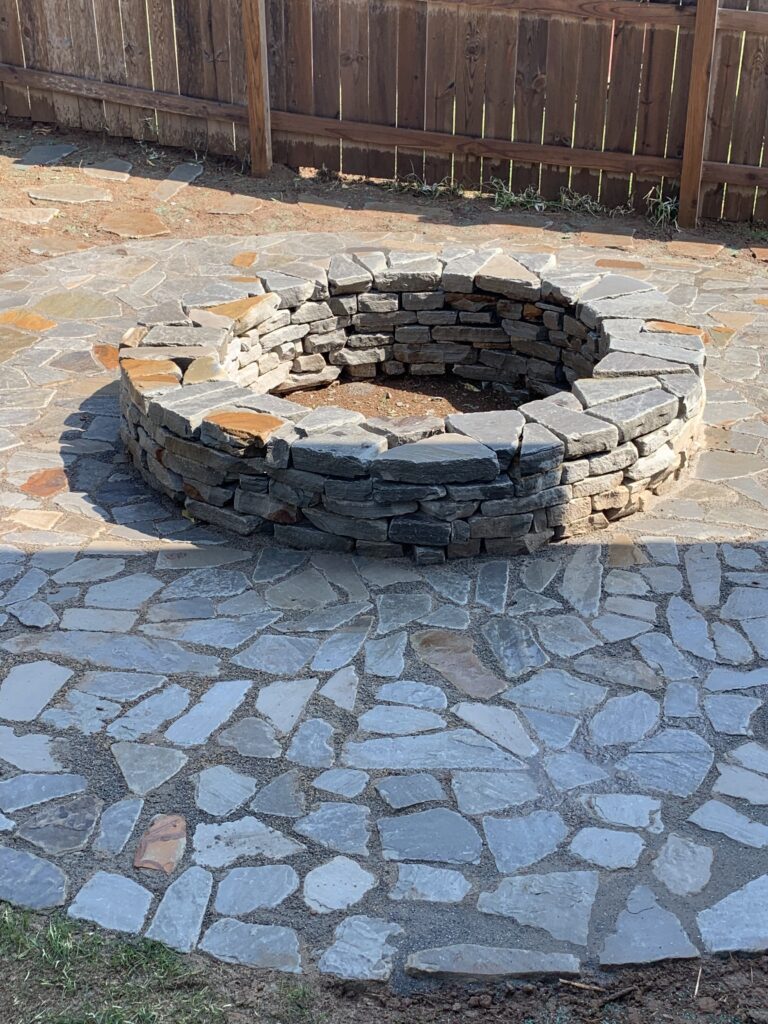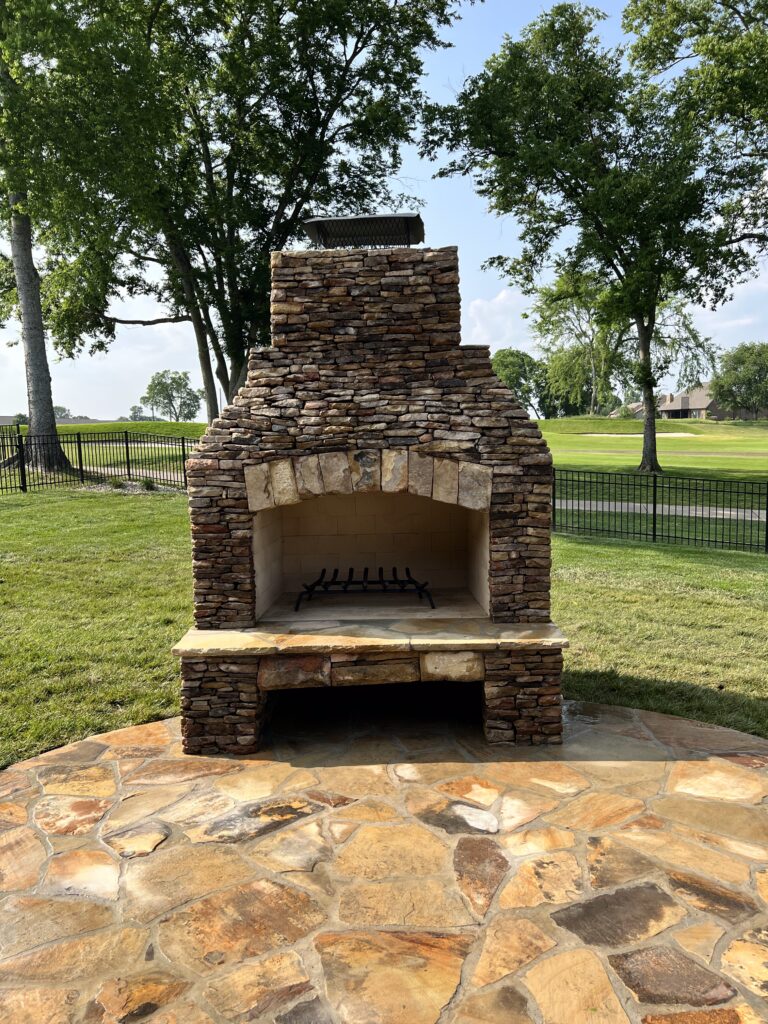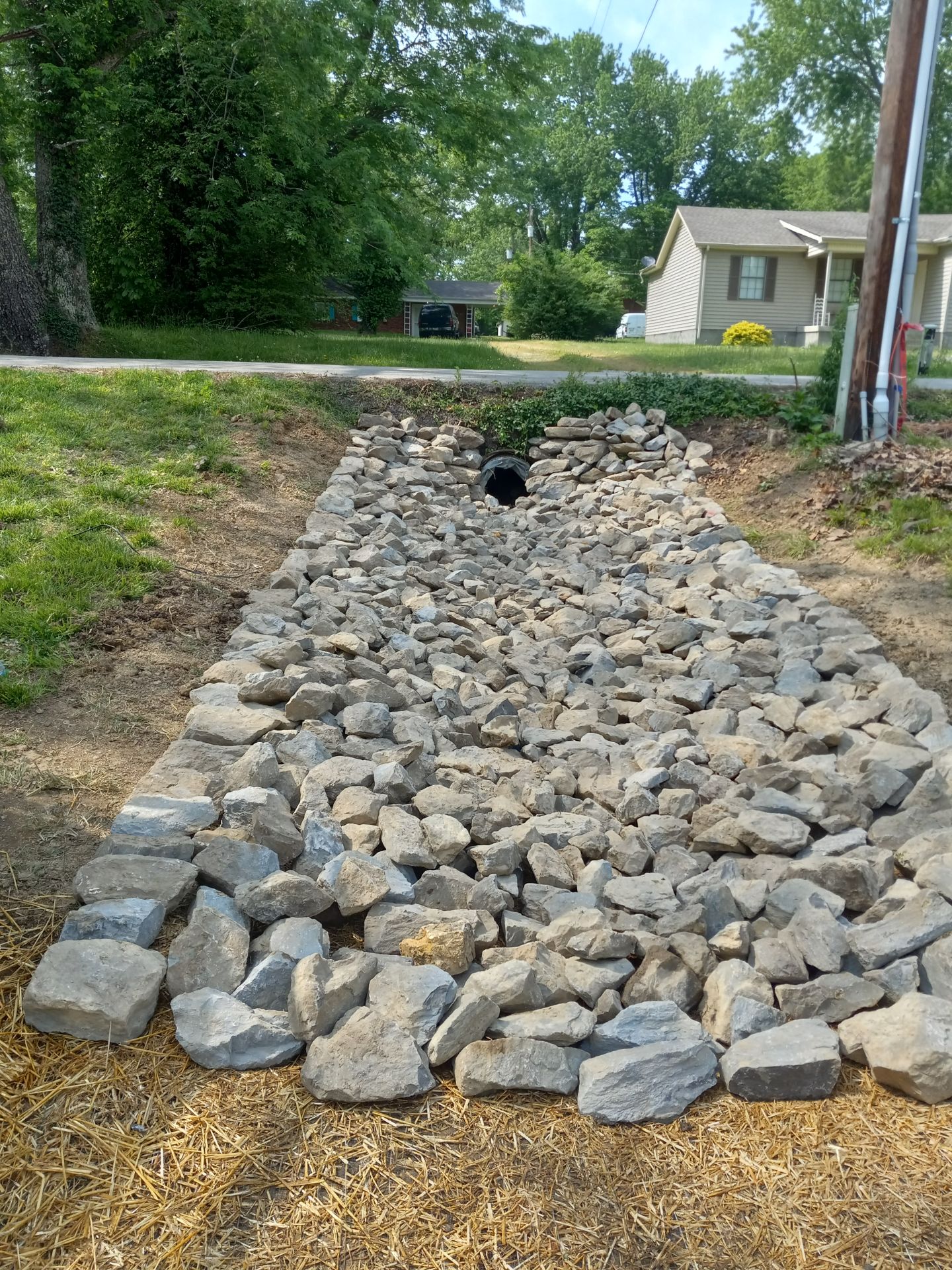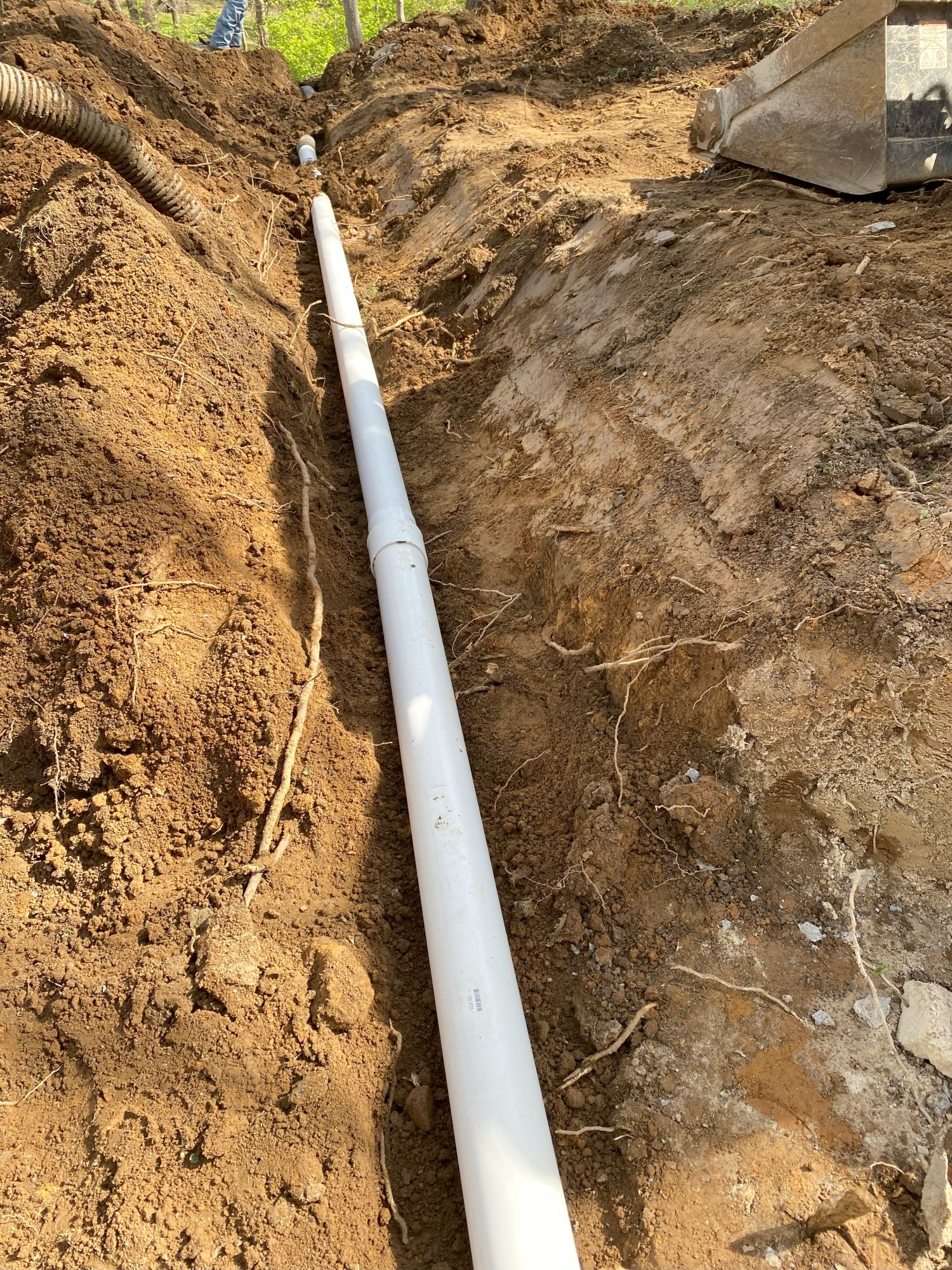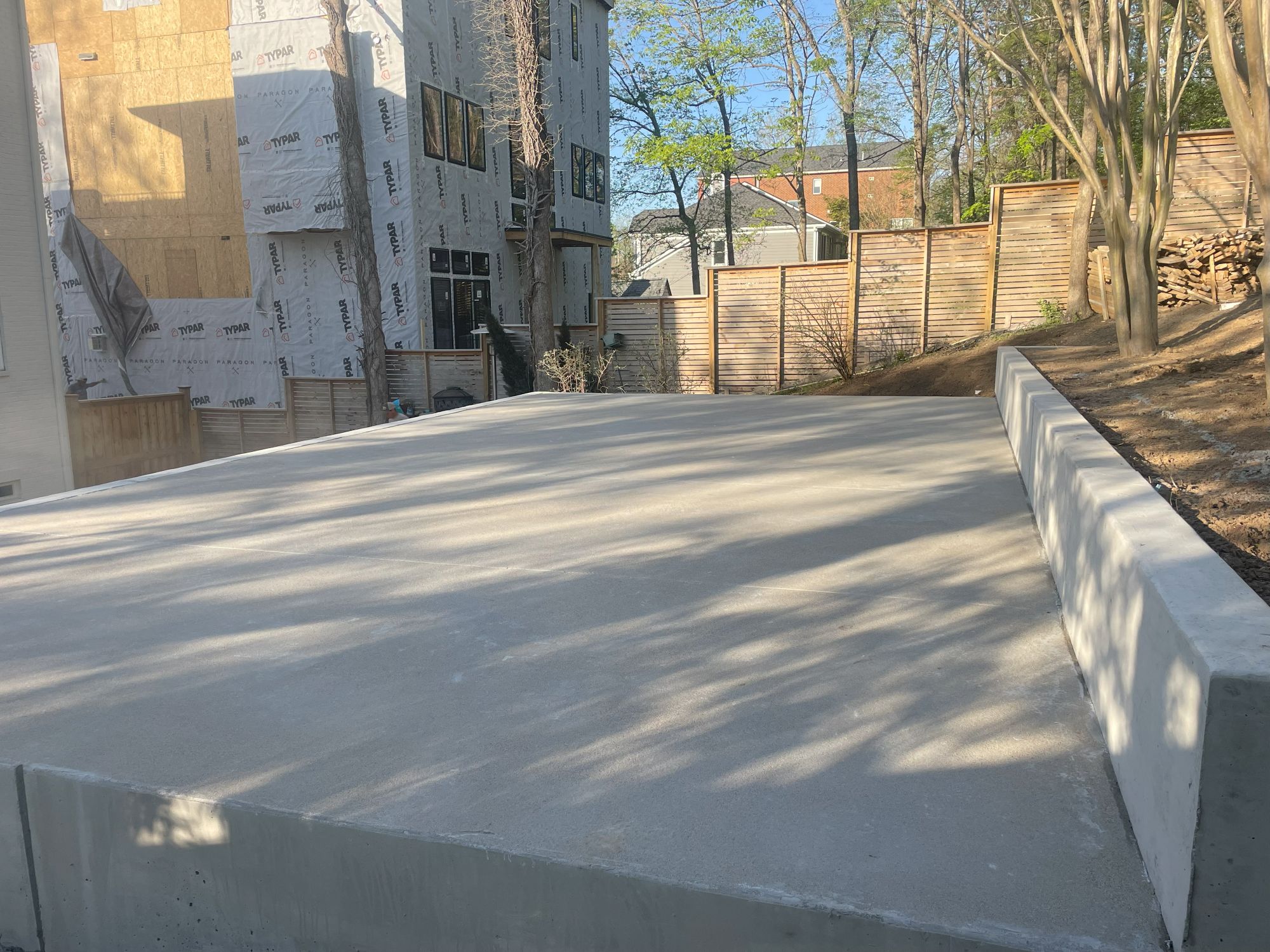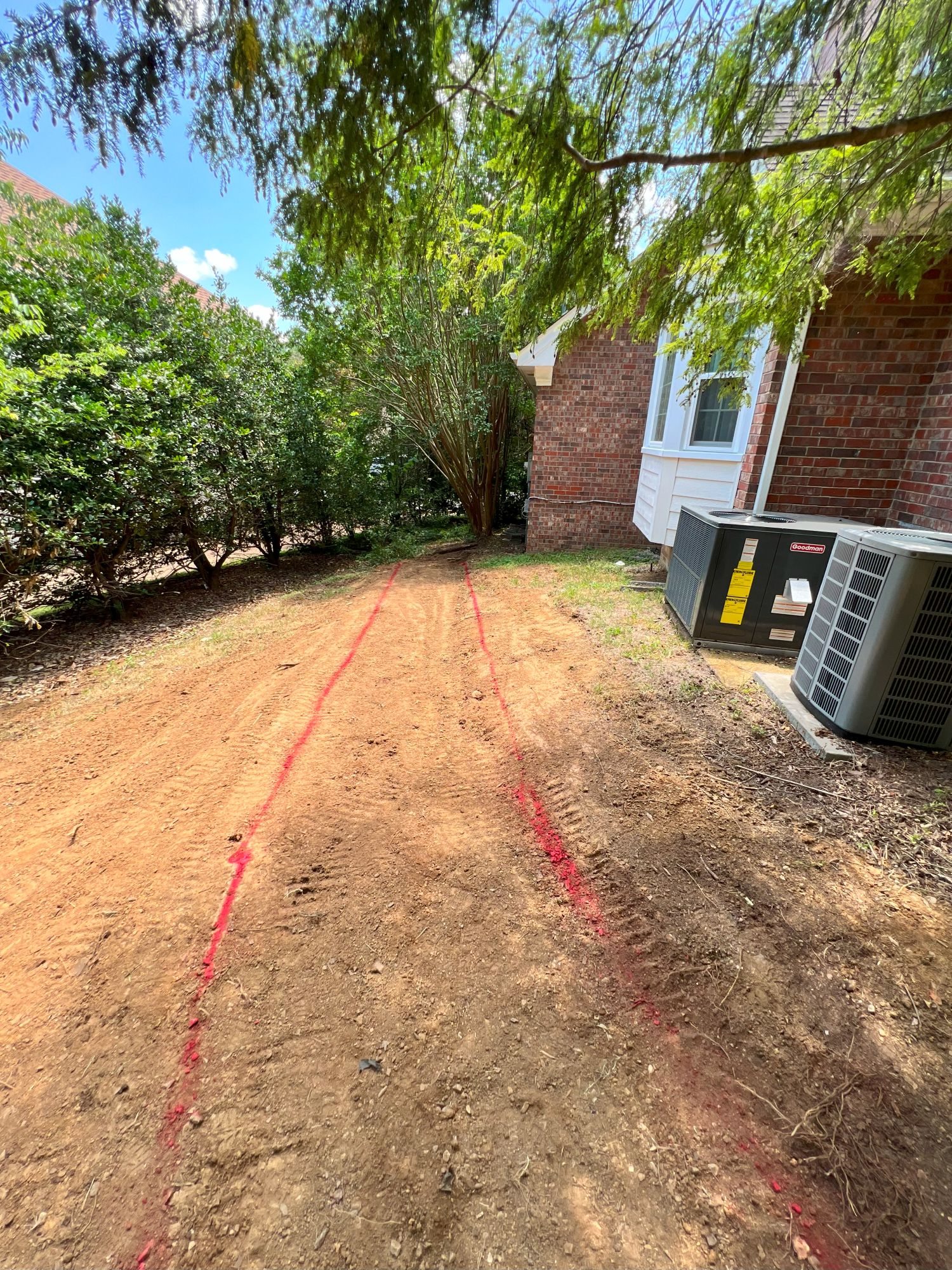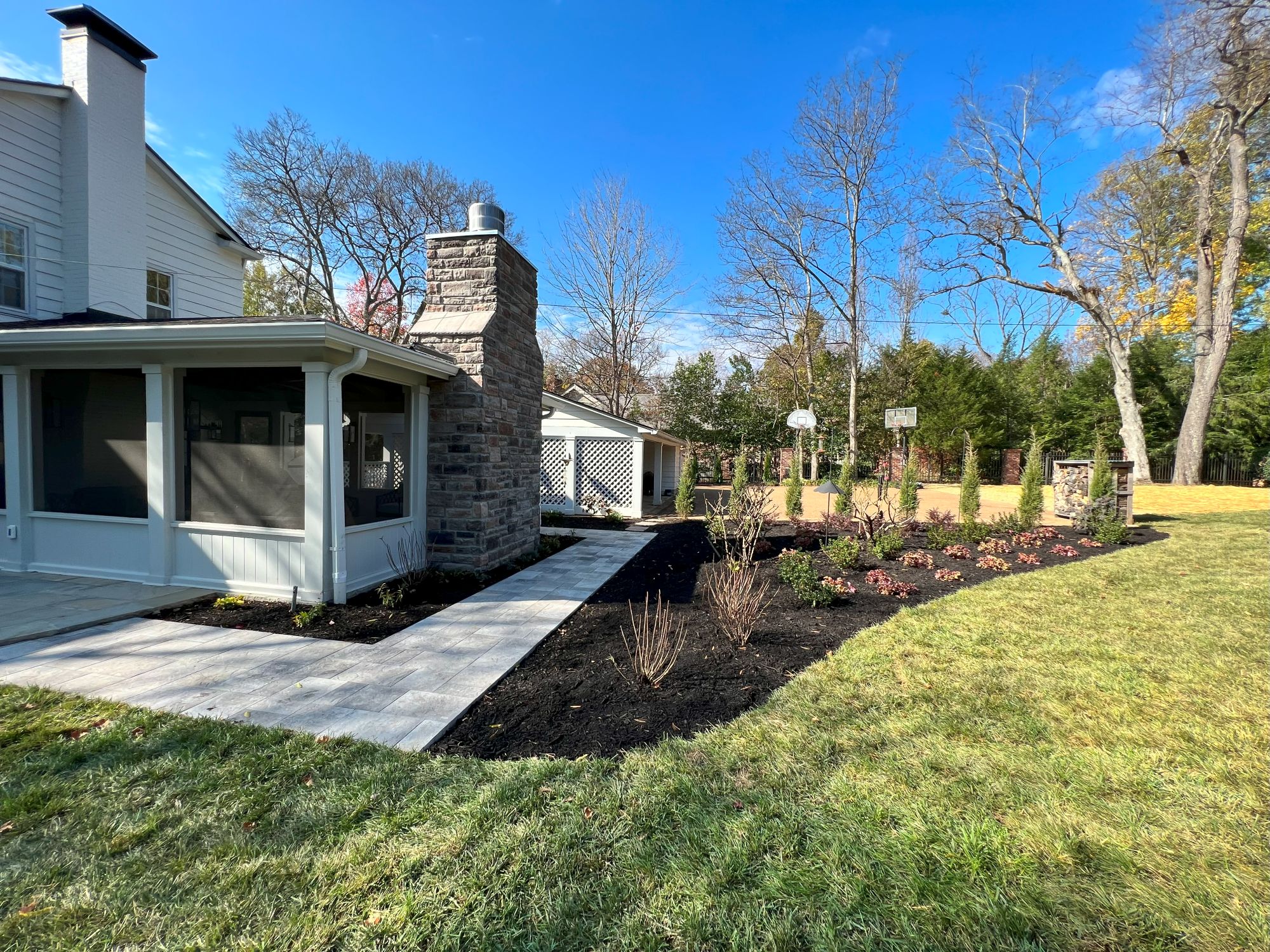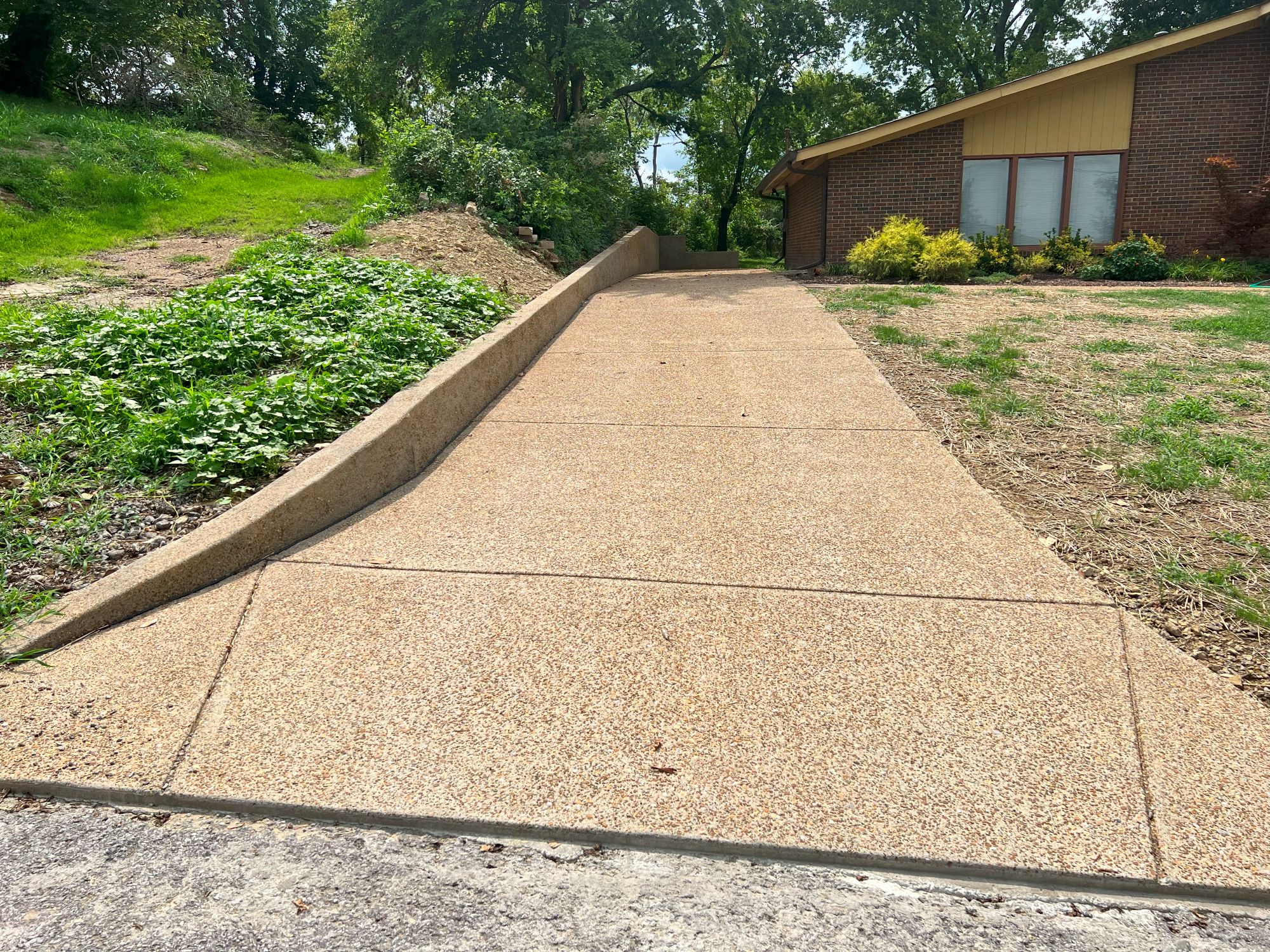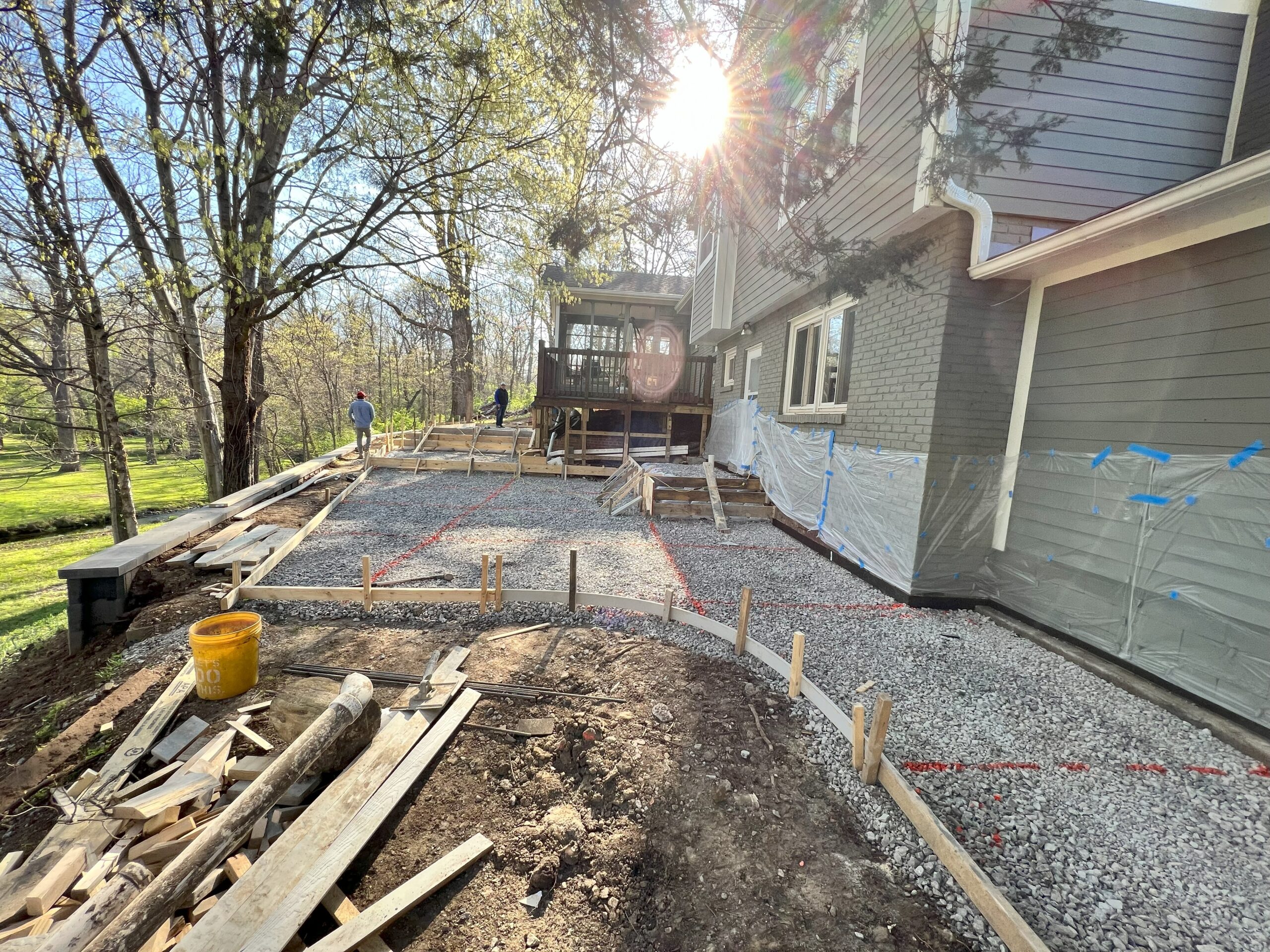Think back to the last time you experienced significant rainfall – did you end up with standing water on your property? Puddles that lasted for days (or more) that left dead spots in your grass, or started to look like an unwanted pond? Did you have to put mowing on the back burner because of a soaked lawn?
Excess water that sits in puddles increases the risk of damaging your foundation, contributes to weed growth, and decreases the sturdiness of rooted ground. Additionally, standing water attracts mosquitoes and serves as a breeding ground for harmful bacteria, posing a threat to children and pets. If you have a basement or crawlspace, all this water could also cause moisture issues, including flooding if severe enough. Some other common problems resulting from excess water include:
- Mold and rotting of wood
- Damage to concrete areas
- Washing away of greenery
- Hazards to nearby electrical elements
- Erosion
Poor drainage can result from ground that isn’t sloped to encourage runoff or by unlevel pockets in your property. There are several drainage solutions to improve runoff that Greenway of Nashville can help with – let’s review them below.
Different Residential Drainage Options to Choose From
There’s more than one way to make sure water stays away from your property. The optimal approach to drainage involves combining different drainage solutions that work for your landscape.
1. French Drains
The most well-known drainage option is called a French drain, which helps redirect water retention above and below ground. A French drain is constructed by digging a trench in a problem area and filling it with gravel. From there, a perforated pipe is laid along the trench line as well as geotextile fabric to redirect water elsewhere. More gravel is used to fill in on top, followed by topsoil. A structure such as this gives the water space underneath to trickle down and disperse instead of staying in one spot above or below ground.
The manual labor for a French drain is significant, and expert knowledge is critical to ensure correct design and installation. Consideration has to be made regarding where the excess water will be redirected. Knowing how to work around roots or difficult terrain is another reason to hire expert help such as Greenway of Nashville – otherwise, you may end up in more trouble than when you began. Not to mention the equipment needed to swiftly perform the task probably isn’t something you keep handy.
It’s important to note that French drains need proper maintenance. As with any pipe, clogging can occur, especially when there is debris such as leaves or brush in the area. If the pipe of a French drain is clogged, water will begin to back up. The sooner this is addressed, the easier the drain will be to clean. Ideally, proactive maintenance should be performed regularly to prevent too much buildup from occurring in the first place.
2. Swales
If the primary issue is surface water collection and you’re looking for less disruption of the ground, a swale may be an appropriate drainage option. This is a shallow, broad ditch that’s subtle enough not to be too apparent. A swale can also help out your green spaces by redirecting water towards plants and garden beds.
As with a French drain, there are several planning elements involved for a swale installation, including materials, location, and pitch. If you don’t have a background in creating these, having an expert construction professional do it will save you time and heartache (especially if calculating angles or spatial organization aren’t your strengths).
3. Retaining Walls
Another option for backyard drainage solutions would be the installation of a retaining wall. These brick or concrete structures are carefully designed and laid to assist in controlling the direction and amount of water movement. This can be a great way to prevent ground erosion, which occurs when the runoff of water carries soil along with it. A retaining wall also helps keep the water in the soil instead of collecting around concrete areas like a foundation or driveway.
Retaining walls require the installation of a full drainage system behind it to assist in directing water flow. Without this, the structure will be just as affected as any other hardscape by pooling moisture and will fail.
An added benefit of retaining walls is that they can be designed as attractive visual elements that increase curb appeal and can increase usable flat space. Depending on your preferences, the type and color of the material used to create the retaining wall can be selected to match the aesthetic of your home.
Retaining walls are time-consuming to build, as you have to calculate the needed height and length, consider quantity and type of materials, plus have the wherewithal to actually lay it. If you don’t have experience in building these structures, consider hiring contractors like those at Greenway of Nashville who tackle these projects on a regular basis.
4. Grading
Another solution (which may be performed alone or paired with the French drain is lawn grading. Grading is defined as the level of incline or decline of a surface, and it’s typically described by a percentage. For example, when walking on a treadmill and setting the incline to 2, this indicates a 2% grade. For drainage, by changing the slope of an area, you can allow gravity to naturally divert water away from where it is collecting.
One major caveat with grading is that where the slope ends needs to be an appropriate place for the water to end up – you wouldn’t want moisture to travel from one bad spot to another, after all. If your lawn doesn’t have anywhere for the water to go, such as a drain or pond, grading alone may not provide a great solution.
“Work with skilled Nashville hardscaping and outdoor construction professionals who understand your vision and respect your schedule. Contact us for a free quote!”
How to Decide What Drainage Solution is Best and When to Install It?
The best time of year to install residential drainage solutions will be before the heavy spring rains arrive. Drainage solutions are best implemented on a day or week when the ground isn’t too cold or wet to dig, and the weather isn’t producing a lot of rain. However, the need for a drainage solution may be more immediate, and it may be best to move forward with this work “out of season” if it means saving your foundation.
If you’re asking yourself, “but what is the best solution for drainage?” just know that there is no one answer, as it depends on all the factors involved. This is why it’s important you have someone experienced and knowledgeable address drainage solutions, providing you with expert advice and guidance. As mentioned earlier, the best drainage solutions are multi-faceted, featuring a combination of proper grading, drain construction, and retaining walls when necessary.
In the long run, addressing your drainage issues now can save you the significant money that it would cost to repair damage from standing water. No one wants to fork over the price of pumping water out of the basement or redoing an entire driveway.
Why Professional Services Are Key to Good Yard Drainage
For more than ten years, Greenway of Nashville has been the trusted expert in exterior services from residential to commercial. We treat every Greater Nashville customer’s home as if it were our own, meaning we’re committed to providing you with the best drainage solutions for your situation. All it takes is a call, and we’ll be there to provide you with the options we’d consider for our personal homes. Putting your home in our experienced hands will provide long-term quality installation and save you from having to go through the effort and cost of fixing well-intentioned mistakes.
Yard drainage solutions will vary in price, especially based on the size of the property and the severity of your water collection. Greenway of Nashville is happy to help by offering a free quote when you schedule an estimate. In fact, our quotes have a 100% guarantee for the services and materials as written.
Trust Greenway to provide you with expert services that give you back your time outside of work, and take the hassle out of protecting your home. Request a free quote today on our website or contact us by phone at (615) 238-4574.
Read more content related to:
